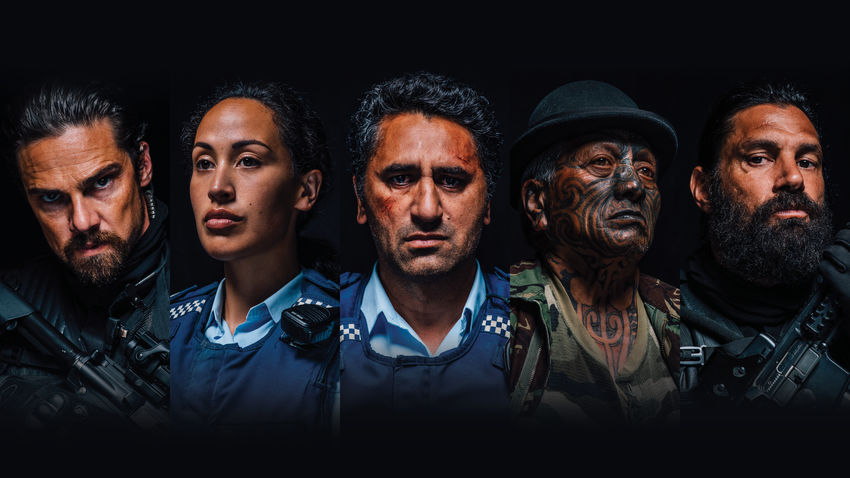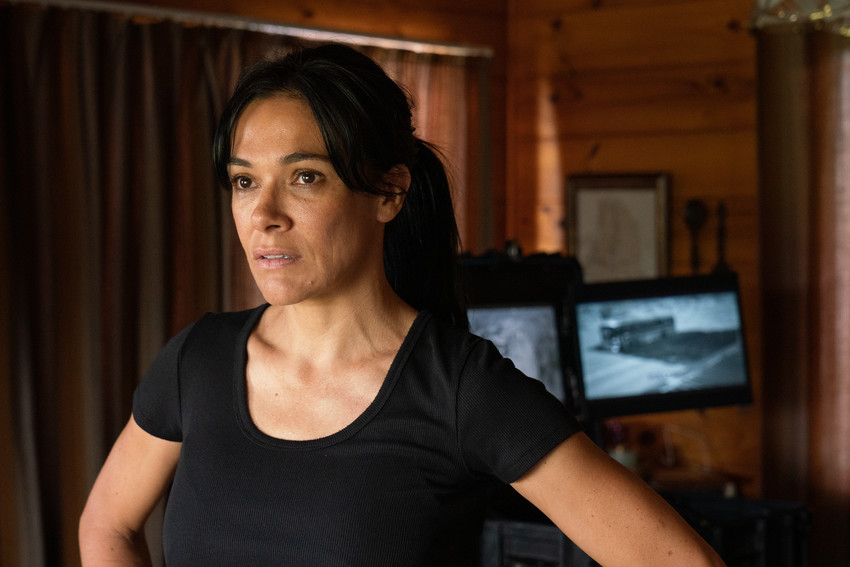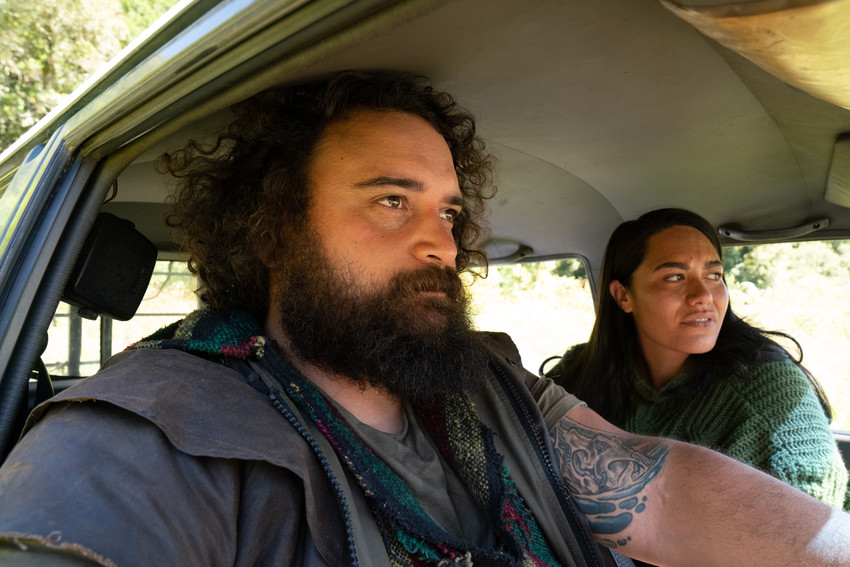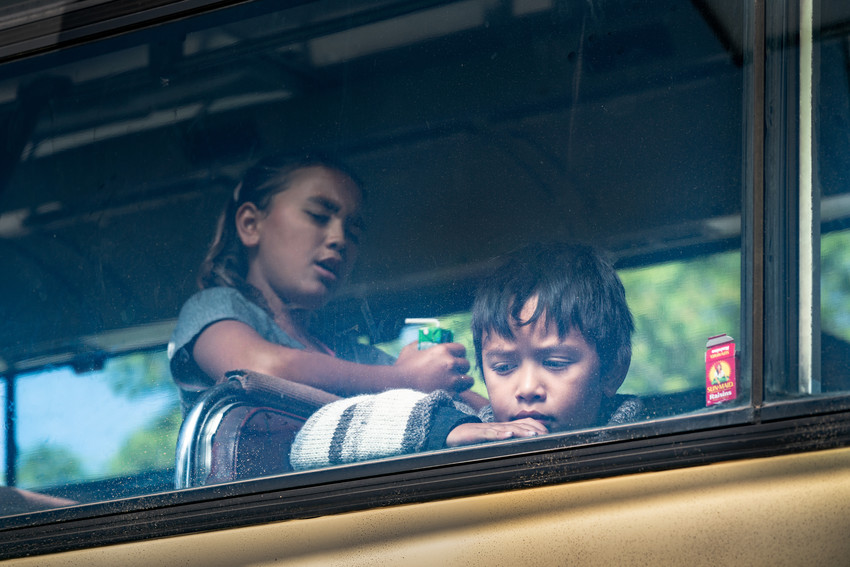'Muru' - Why its a must watch for brown audiences.

"It is time to shine light into the valley and reclaim the narrative and move beyond the errors and misjudgments of a system that has become accustomed to keeping its boot on our neck."
‘Muru’ was released nationwide to cinemas on the 1st of September and is a breathtaking action packed rollercoaster that takes you on an emotional journey through the trauma of the Uruwera raids and other events that the Tuhoe people suffered at the hands of the NZ government.
It's a fictionalization of some these moments into one epic story - featuring a cast of some of Aotearoa’s stellar Māori actors, lead by Cliff Curtis and Tame Iti who plays himself.
We spoke to the film’s lead producer, who is of Cook Island descent, Reikura Kahi (Ngāti Porou, Ngāti Hine, Waikato, Te Whānau-ā-Apanui, Cook Island). Reikura has been working in the screen industry for 25 years in various capacities, including Te Reo Māori consultant, actor, producer and Māori TV programme commissioner. She's passionate about kaupapa Māori storytelling and nurturing Māori talent.

-
Muru is an epic undertaking and told from such position of heart driven kaupapa - Why was it important to you to bring this story to screen?
It is time to shine light into the valley and reclaim the narrative and move beyond the errors and misjudgments of a system that has become accustomed to keeping its boot on our neck.
Muru speaks to the thematic truth and we decided that there was a real opportunity through this story to ensure there is never another 15th of October.


What was behind the decision to make it a fictionalized version of many moments of Tuhoe’s history of persecution?
We’ve woven a story together that speaks to a much wider canvas and uncovers a much deeper truth that will hopefully lead to new conversations and new courses of action. While there is a focus on the many raids on Tūhoe the film also speaks to the many raids on all Māori people throughout history. The timing is good as NZ and Māori history is taught in schools throughout Aotearoa.
-
How hard was that to merge into one story?
Not hard at all.


Fiction V fact has been a talking point already about the film - do you feel this is detracting from what you guys are interested in highlighting about this work?
Not at all. We’ve chosen a non-conventional story form, thematic truth over reporting the events to reach a higher goal, culturally and socially. There will be talking points, opinions, detractive and supportive, but all expectations are exceeded and a new journey takes place as the story unfolds.
When the film ends, we hope those retractions have disappeared.

We loved hearing the reo thru the whole movie and it was Tuhoe dialect, were there any of the actors who weren’t fluent in this and who had to learn?
This story could only have been told through the Tūhoe dialect. It was important to me, Tame Iti and Tearepa, that all our Tūhoe characters communicated in their mother tongue. The Tūhoe dialect is so unique and instantly transports us to the misty and deep valley of Te Urewera.
All our cast were at different points in their reo Māori journey. Te Haumihiata, foremost Tūhoe Māori language expert planted the Tūhoe dialect into the script. We were also fortunate to have the support of our Tūhoe kaumātua Tame Iti, Tipi Ohlson, Aroha Teepa and dialect coach, Nika Rua.
Cliff Curtis especially was immersed in the Tūhoe dialect on and off set spending a lot of time with our Tūhoe kaumātua to get the flow of the Tūhoe dialect.


What were the protocols you had to go thru to get Tuhoes blessing on the project, and what has been their feedback after seeing it?
Tame Iti wore many hats in this film. He's the producer, Tūhoe kaumātua and actor. He was integral to gaining support for filming in Rūātoki and Te Waimana. He advised who to engage with and the processes we needed to follow. Authentic engagement with iwi, where culture diversity and protocols are acknowledged and respected should always be the approach when filming within a living and breathing community.
Feedback from the Whakatāne premiere was emotionally diverse, from 'I just cried so much' to 'yes, it was a modern version of the 1916 invasion'. Overall they were overwhelmed with the film and amazed by the action.


As a Maori female producer what were some of the things you think you were able to bring to this narrative on a storytelling level?
I hope more than anything the audience feels the authenticity, respect and care in which the story is told. As a Māori producer telling our stories through a culturally authentic lens is paramount. We must reclaim the narrative to ensure our stories are told from our unique cultural perspective.
We are grandmother, mothers, daughters, nieces, the nurturers and protectors of our community. This is reflected in the characters and storylines of this film.


While it is great timing for our film, it's disappointing that it has taken so long for our education system to finally teach NZ Māori history. We hope this film reinforces the importance of indigenous storytelling in reclaiming our sovereignty. We need to celebrate the achievements of Ngā Tamatoa and Panthers, who fought for our rights as pacific people and the many injustices they faced and we continue to face. Let their efforts not be in vain.

What do you love the most about Muru as a film that you are hoping young indigenous generations will relate to?
-
MURU is showing now in theatres nationwide around Aotearoa.
Click here for more screenings around NZ

